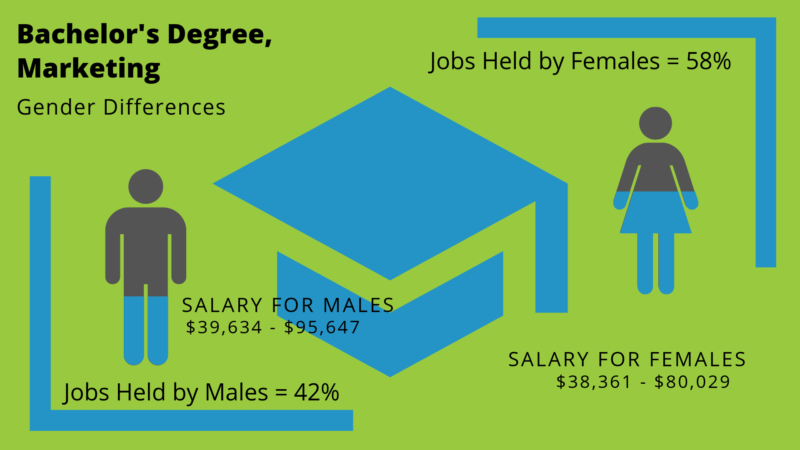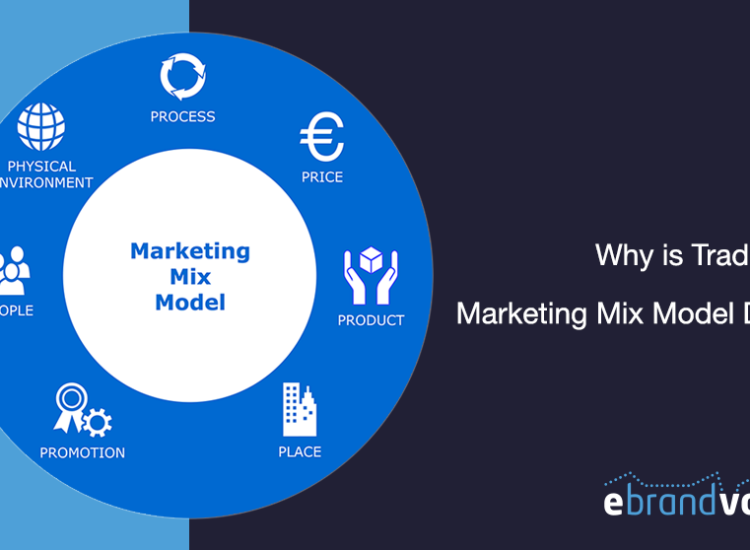In today’s competitive business landscape, strategic marketing skills are more important than ever. A Bachelor’s degree in Marketing offers a pathway to a dynamic and rewarding career, equipping you with the knowledge and expertise necessary to thrive in various industries. In this comprehensive guide, we explore what a Marketing Bachelor’s degree entails, the benefits it offers, and potential career opportunities.
Toc
Introduction to Marketing Degree

Marketing is the process of promoting and selling products or services to potential customers. It involves understanding consumer behavior, identifying target markets, and creating strategies to reach and engage with them. Effective marketing techniques can help businesses increase brand awareness, drive sales, and build customer loyalty. As such, individuals with a Marketing Bachelor’s degree are highly sought after in various industries.
What is a Marketing Bachelor’s Degree?
A Marketing Bachelor’s degree is an undergraduate program designed to provide students with a solid foundation in marketing principles and practices. The curriculum typically covers a wide range of topics, including:
- Market Research: Understanding consumer behavior and market trends.
- Digital Marketing: Utilizing online tools and platforms to promote products and services.
- Marketing Strategy: Developing comprehensive plans to meet business goals.
- Brand Management: Building and maintaining a strong brand identity.
- Advertising and Promotion: Crafting compelling campaigns to attract and retain customers.
- Sales Management: Leading sales teams and optimizing sales processes.
Many programs also offer specialized courses in areas like social media marketing, content marketing, and international marketing, allowing students to tailor their education to their specific interests.
What Can You Expect from a Marketing Bachelor’s Degree?
A Marketing Bachelor’s degree program typically takes four years to complete and provides students with a well-rounded education in marketing principles, consumer behavior, market research, advertising, and digital marketing. The curriculum may also cover business fundamentals such as economics, finance, and management.
Students can expect to learn both theoretical knowledge and practical skills through coursework, internships, and hands-on projects. They will develop critical thinking abilities and problem-solving skills that are essential for success in the fast-paced world of marketing.
What Does a Marketing Bachelor’s Degree Cover?

A Marketing Bachelor’s degree provides a well-rounded education in various aspects of marketing, including market research, advertising, public relations, branding, and digital marketing. You will also gain a strong foundation in business principles such as economics, finance, accounting, and management.
Core Courses
Core courses in a Marketing Bachelor’s degree program are designed to build essential skills and knowledge in the field. Students typically engage in subjects such as:
- Principles of Marketing: An introduction to marketing concepts, theories, and practices, focusing on the marketing mix, customer relationships, and strategy formulation.
- Consumer Behavior: This course explores the psychological and social factors that influence consumer purchasing decisions, helping students understand their target audience.
- Marketing Research: Students learn how to design research studies, gather data, and analyse results to make informed marketing decisions.
- Integrated Marketing Communications: This course examines the various channels used to communicate with consumers, including advertising, public relations, and social media, emphasizing the importance of a cohesive branding strategy.
- Digital Marketing Strategies: Covering online marketing techniques, such as search engine optimization (SEO), content marketing, and social media strategies, this course prepares students for the modern marketing landscape.
Elective Courses
In addition to core courses, many Marketing Bachelor’s degree programs offer a variety of elective courses to allow students to specialize in specific areas of interest. These may include:
- Social Media Marketing: This course delves into the use of social media platforms for marketing purposes, including creating and managing social media campaigns.
- Marketing Analytics: Students learn how to use data analysis techniques to evaluate marketing strategies and make data-driven decisions.
- International Marketing: Covering topics such as cultural differences, global market trends, and international trade policies, this course prepares students for marketing in a global context.
Career Outlook for Marketing Graduates

A Marketing Bachelor’s degree can open doors to a variety of career opportunities in diverse industries, such as retail, advertising, public relations, market research, and consulting. Graduates can pursue roles like:
Marketing Coordinator
A Marketing Coordinator plays a pivotal role in supporting marketing campaigns and ensuring their successful execution. Typically, this position involves coordinating various marketing activities, including managing project timelines, liaising with vendors, and assisting in the development of marketing materials. Marketing Coordinators must possess strong organizational skills and a keen eye for detail, as they are responsible for tracking campaign progress and analyzing results. Effective communication and teamwork are essential in this role, as close collaboration with other marketing professionals and departments is often required to align strategies and achieve common objectives.
Marketing Manager
For those who advance further, a Marketing Manager position entails a broader scope of responsibilities. Marketing Managers develop and implement marketing strategies to drive brand growth and achieve company goals. They oversee the marketing team, allocate budgets, and conduct market research to identify trends and consumer needs. This role demands strong leadership, analytical capabilities, and creativity, as Marketing Managers must adapt strategies to resonate with target audiences effectively. Additionally, they regularly analyze campaign performance and make data-driven decisions to optimize future initiatives.
Brand Strategist
Another enticing career path for graduates is that of a Brand Strategist. Brand Strategists focus on building and maintaining a brand’s identity and presence in the marketplace. They conduct thorough market research to understand competitor positioning and consumer perceptions, enabling them to develop comprehensive branding strategies. In this role, creativity and strategic thinking are vital, as Brand Strategists work to craft compelling narratives that resonate with consumers and establish emotional connections.
Brand Manager
A Brand Manager is crucial in overseeing a brand’s strategy and ensuring its consistent presentation across various platforms. This role involves creating and implementing marketing campaigns that strengthen brand awareness and enhance the customer experience. Brand Managers monitor market trends and consumer feedback to adjust strategies effectively, ensuring that the brand remains relevant and competitive. Strong analytical skills, creativity, and an understanding of market dynamics are vital for success in this position, as Brand Managers must make informed decisions based on comprehensive market analysis.
Market Research Analyst
Market Research Analysts play a key role in collecting and interpreting data related to consumer preferences and market conditions. By employing various research methodologies and statistical techniques, these professionals provide insights that guide marketing strategies and product development. They create reports that help organizations understand potential growth areas, evaluate competitors, and assess consumer trends. A major strength of successful Market Research Analysts lies in their ability to communicate complex data clearly to stakeholders, translating insights into actionable recommendations.
Digital Marketing Specialist
In today’s increasingly digital landscape, a Digital Marketing Specialist is vital for managing online marketing initiatives. This role encompasses a wide range of responsibilities, including developing and executing digital campaigns, optimizing websites for search engines, conducting email marketing campaigns, and managing social media presence. Digital Marketing Specialists must stay ahead of industry trends and technological advancements to create effective strategies that engage consumers. Strong analytical skills are essential for monitoring campaign performance and making data-driven adjustments to maximize impact and reach.
Benefits of a Marketing Bachelor’s Degree

A Marketing Bachelor’s degree offers numerous benefits, both personally and professionally. Some of the top advantages include:
Diverse Career Opportunities
A Marketing Bachelor’s degree equips graduates with versatile skills that can be applied across various sectors, allowing for diverse career opportunities. This adaptability means that graduates can transition into roles in different industries, such as technology, healthcare, finance, or entertainment, depending on their interests and skills. The marketing landscape is ever-evolving, ensuring that there is a constant demand for innovative thinkers who can navigate changes and respond to new challenges in consumer behaviour and market dynamics. Furthermore, the chance to specialise in areas like digital marketing or brand management offers professionals the ability to carve out unique career paths tailored to their personal passions. This flexibility not only enhances job satisfaction but also contributes to long-term career growth and stability.
Networking and Professional Development
Studying for a Marketing Bachelor’s degree also presents invaluable networking opportunities. Students can connect with industry professionals through internships, networking events, and guest lectures, fostering relationships that may lead to future job prospects. Many universities also offer resources such as career fairs and mentorship programs to help students build their professional networks. This engagement plays a crucial role in personal growth and can lead to job placements or valuable industry insights post-graduation. Additionally, ongoing professional development is vital in marketing, where trends and technologies change rapidly. Graduates are encouraged to pursue further training and certifications, ensuring they remain competitive and proficient in their field.
High Demand for Marketers
The demand for skilled marketers continues to rise as companies recognise the importance of effective marketing strategies in driving growth and maintaining competitive advantage. In an increasingly digital-first environment, businesses are seeking professionals who can navigate complex marketing channels, analyse data, and engage consumers effectively. This high demand translates to a wealth of job opportunities across various sectors, with roles often offering competitive salaries and advancement potential. Moreover, the ever-evolving nature of consumer behaviour and technology means that marketers must continuously upgrade their skills, making the field dynamic and exciting. As businesses increasingly rely on innovative marketing solutions to reach their target audiences, graduates with a Marketing Bachelor’s degree will find themselves well-prepared to embark on a successful career path.
Lucrative Salaries
A Marketing Bachelor’s degree often paves the way for lucrative salaries across a variety of positions. As companies vie for top marketing talent, professionals can benefit from competitive compensation packages. Entry-level positions, such as Marketing Coordinator or Digital Marketing Specialist, typically offer attractive starting salaries that grow significantly with experience and proven results. Moreover, specialised roles such as Brand Manager, Market Research Analyst, or Digital Marketing Manager provide even greater earning potential due to their strategic importance within organisations. As marketers develop their skills and take on leadership roles, continual increases in salary reflect their value in driving business success. This financial incentive, combined with diverse career opportunities, makes pursuing a Marketing degree an appealing prospect for those looking to build a rewarding career.
Opportunity for Growth
One of the most appealing aspects of obtaining a Marketing Bachelor’s degree is the significant opportunity for career growth. As professionals gain experience and refine their skills, they often ascend into higher-level positions such as Marketing Manager or Director of Marketing. These roles not only come with greater responsibilities but also offer the chance to lead teams and shape marketing strategies at an organisational level. Additionally, many companies prioritise promoting from within, enabling dedicated individuals to climb the career ladder rapidly. Continuous learning and development, whether through advanced degrees or industry certifications, further enhance growth potential, making marketing a field where ambition and innovation can lead to substantial career advancements.
Creativity and Innovation
Creativity is at the heart of successful marketing. A Marketing Bachelor’s degree encourages students to think outside the box and develop innovative strategies that resonate with consumers. In an environment where originality is key to capturing attention, marketers are challenged to create compelling campaigns that stand out. This focus on creativity is complemented by analytical skills, allowing professionals to assess the effectiveness of their ideas and make data-driven decisions. As they explore various forms of media and technology, marketers have the freedom to experiment and push creative boundaries, which can result in exciting and memorable brand experiences.
Global Perspective
In today’s interconnected world, understanding global markets is crucial. A Marketing Bachelor’s degree often includes coursework that covers international marketing strategies, cultural nuances, and global consumer behaviour. This global perspective equips graduates with the knowledge necessary to navigate the challenges of marketing across diverse geographical regions. With many companies operating on a global scale, marketers who possess this understanding are better prepared to develop campaigns that appeal to a wider audience and respect cultural differences. As businesses expand into new markets, the ability to think globally becomes an invaluable asset for any marketing professional.
Conclusion

In summary, obtaining a Marketing Bachelor’s degree opens a world of opportunities for aspiring professionals. This degree not only equips students with essential skills in creativity, analytics, and strategy but also prepares them for a dynamic landscape where adaptability and innovation are crucial. As the marketing field continues to evolve with the rapid pace of technological advancements and changing consumer behaviours, graduates are positioned to thrive in various roles that drive business success. With a strong foundation in core marketing principles and a mindset geared towards continuous learning, individuals can carve out rewarding careers that blend passion and purpose, ultimately contributing to the growth of their organisations. Embarking on this educational journey is not just a step towards a job; it is an investment in a future filled with endless possibilities and fulfilment in the dynamic world of marketing.







